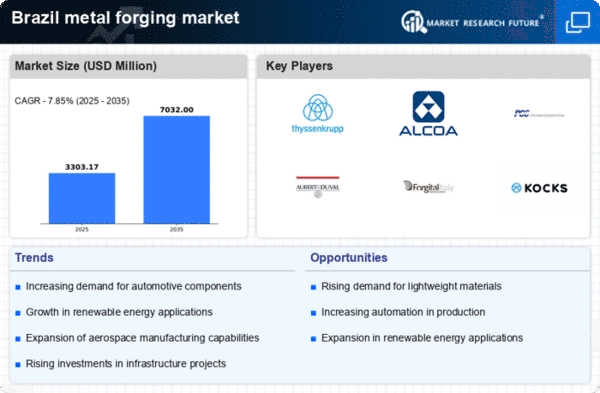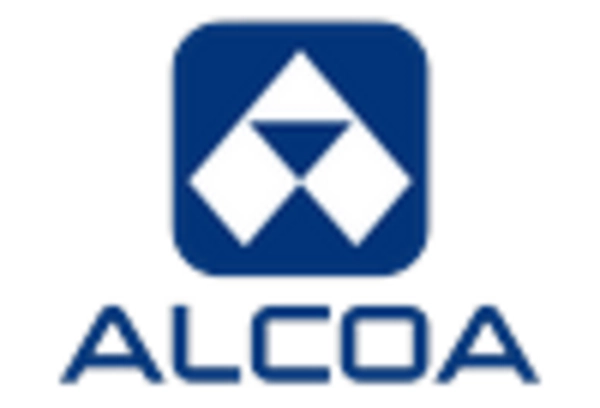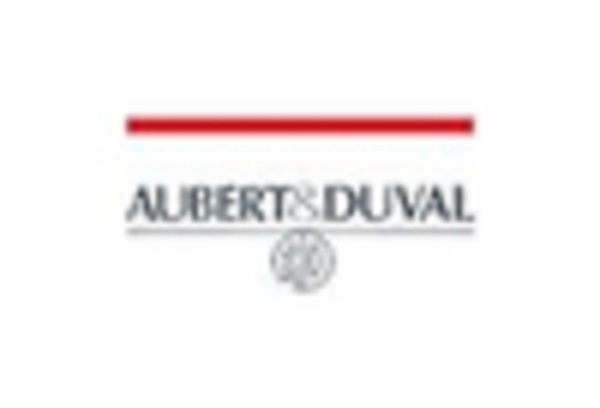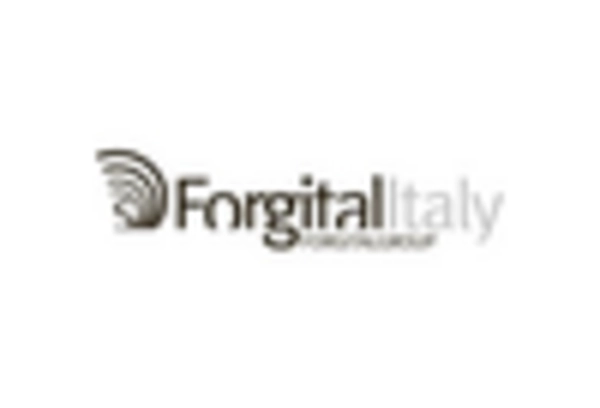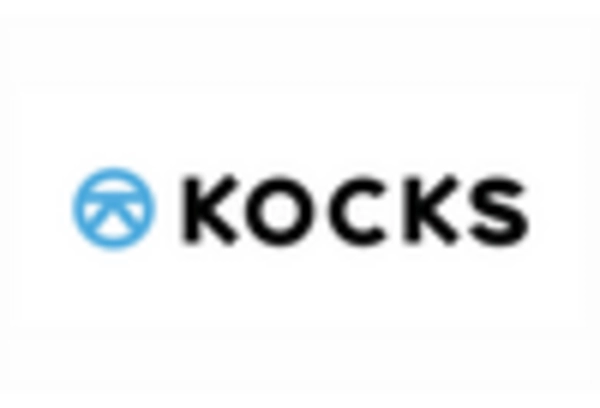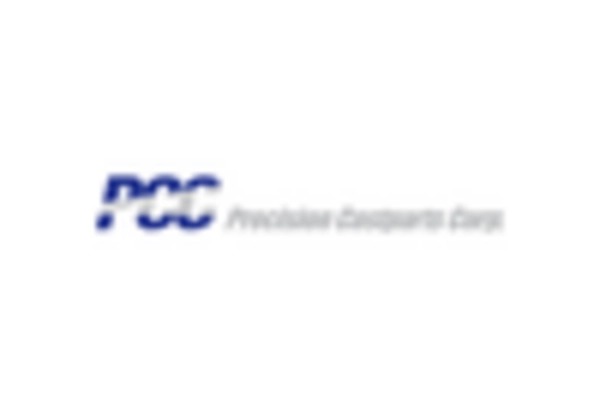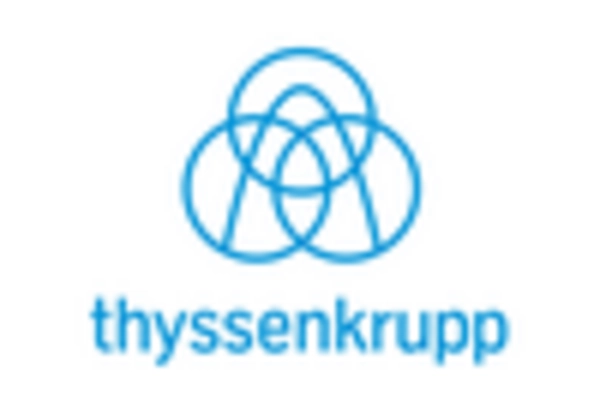The metal forging market in Brazil is characterized by a competitive landscape that is increasingly shaped by innovation, strategic partnerships, and regional expansion. Key players such as Thyssenkrupp AG (DE), Alcoa Corporation (US), and Precision Castparts Corp (US) are actively pursuing strategies that enhance their market positioning. Thyssenkrupp AG (DE) focuses on technological advancements in manufacturing processes, which appears to bolster its competitive edge. Alcoa Corporation (US) emphasizes sustainability in its operations, aligning with global trends towards environmentally responsible practices. Meanwhile, Precision Castparts Corp (US) is likely concentrating on mergers and acquisitions to expand its product offerings and market reach, thereby intensifying competition within the sector.The business tactics employed by these companies include localizing manufacturing to reduce costs and optimize supply chains. The market structure is moderately fragmented, with several players vying for market share. This fragmentation allows for a diverse range of products and services, yet the collective influence of major companies like Thyssenkrupp AG (DE) and Alcoa Corporation (US) is significant, as they set benchmarks for quality and innovation that smaller firms strive to meet.
In October Thyssenkrupp AG (DE) announced a strategic partnership with a local Brazilian firm to enhance its production capabilities in the region. This move is indicative of Thyssenkrupp's commitment to strengthening its foothold in Brazil, potentially leading to improved operational efficiencies and market responsiveness. Such partnerships may also facilitate knowledge transfer and technology sharing, which could be pivotal in maintaining competitive advantage.
In September Alcoa Corporation (US) launched a new line of sustainable aluminum products specifically designed for the automotive sector. This initiative not only underscores Alcoa's focus on sustainability but also positions the company to capitalize on the growing demand for eco-friendly materials in manufacturing. The strategic importance of this launch lies in its potential to attract environmentally conscious clients and enhance Alcoa's reputation as a leader in sustainable practices.
In August Precision Castparts Corp (US) completed the acquisition of a smaller forging company, which is expected to expand its product portfolio and enhance its technological capabilities. This acquisition reflects a broader trend in the industry where larger firms seek to consolidate their market presence through strategic acquisitions. The integration of new technologies and expertise from the acquired firm may provide Precision Castparts with a competitive edge in innovation and product development.
As of November the competitive trends in the metal forging market are increasingly defined by digitalization, sustainability, and the integration of artificial intelligence (AI) into manufacturing processes. Strategic alliances are becoming more prevalent, as companies recognize the value of collaboration in navigating complex market dynamics. Looking ahead, competitive differentiation is likely to evolve from traditional price-based competition to a focus on innovation, technological advancement, and supply chain reliability. This shift suggests that companies that prioritize these areas will be better positioned to thrive in an increasingly competitive environment.


